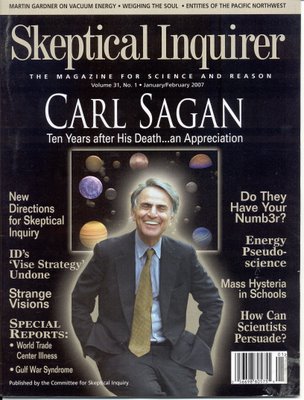 ...and I'm here to help you
...and I'm here to help you'Tis the season for various media luminaries to go on vacation and turn their spots over to guest hosts and substitutes. During the week after Christmas, I heard Tammy Bruce sitting in for Laura Ingraham on the latter's radio talk show. (Imagine how humiliating it must be to serve as second-string to Laura Ingraham.) Bruce, in case you didn't know, is that oddly pieced-together platypus of a media celebrity who cheerfully describes herself as “an openly gay, pro-choice, gun owning, pro-death penalty, voted-for-President Bush progressive feminist.” She also apparently voted for Ronald Reagan. I presume it's that self-proclaimed “progressive” aspect that permits her to be an “out” lesbian, because otherwise gays who vote for Republicans are expected to remain discreetly closeted (although I did once hear a rumor about there possibly being a lesbian in Dick Cheney's family).
Bruce took the opportunity of her turn in Ingraham's small spotlight to whinge about the FDA's announcement concerning the safety of meat and milk from cloned farm animals. “Oh, I suppose they know so much better than we do because they're from the government,” she hissed.
Well, as a matter of fact, they do. It's not simply a case of being “from the government”; it's because they're from the Food and Drug Administration, which has professional requirements for its personnel. We may be distracted at times by the obvious fact that the top levels of government are packed with many grotesquely incompetent individuals and quite a few scoundrels (think Bush, Cheney, Rumsfeld, Rice, Hastert, et al.), but those folks aren't representative of most government employees. The people at the top levels get there by means of election (so it's our fault, I'm afraid—except perhaps for that scandal in 2000) or appointment (making it the fault of those elected to the appointing positions). They just need political connections, so they can get by with having as little knowledge and as few skills as, say, a talk-show host.
It is a different story in the trenches. You can't get a job in the rank and file of the civil service without passing a qualifying test that assesses your skills and abilities. I took a few of these tests myself when I spent several years in the California civil service. Guess what? I actually had to know some operations research to pass the test that put me on the hiring list for Operations Research Specialist I. Damn! (I was right near the top, too.)
I'll bet the people who work for the FDA know a hell of a lot more about food safety than Tammy Bruce. Sure, she probably makes more money than they do, while she sits in front of a microphone and sneers at them from her lofty perch, but I dare say the civil servants take more care in their work than their loud-mouthed critics. The scientists in the FDA work to protect us from unsafe food and drugs. That's their job. Bruce can thumb her nose at them all she wants, but I wonder what would happen to her if she had to make all her own food and drug safety decisions. Maybe Bruce would like a free market approach: Let's not shop at those markets whose customers die from tainted food products. Let's buy drugs on the Internet at random (or maybe according to their pretty colors) and see if they cure us or kill us. Um. You go first.
Unfortunately, the civil servants in the FDA and other federal and state agencies are human beings, and therefore fallible. They certainly catch hell for their mistakes, being alternately damned as interfering bureaucrats and condemned for not catching every single danger. I've worked in their ranks—although mercifully not in a front-line public safety capacity—and I've seen that a large majority of civil servants are highly qualified, do their work well, and shoulder their responsibilities admirably. Most of the problems I've observed in civil service have stemmed from the interference of political appointees who overrule their staff people for ideological reasons. In recent years, examples of this sort have been a staple of the Bush administration.
In the case of meat and milk from clones, it's already clear that the public has deep reservations. Commercial success seems unlikely. No doubt rants from people like Bruce will contribute to that fear and distrust. That, however, is not what the FDA report was about. The FDA says it's safe. It's not the FDA's job to determine whether it's marketable. The commercial sector can work that out for itself.

















































